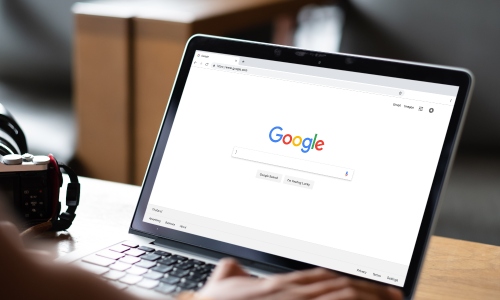In a landmark court case, Google has been found culpable of maintaining a monopoly for its “general search services” and “general search text advertising,” placing it in potential violation of federal antitrust laws, according to Judge Amit Mehta.
“After having carefully considered and weighed the witness testimony and evidence, the court reaches the following conclusion: Google is a monopolist, and it has acted as one to maintain its monopoly,” the court’s ruling reads. “It has violated Section 2 of the Sherman Act.”
Continuing, Mehta described “Google’s monopoly in general search” as “remarkably durable,” citing that it rose from 80% in 2009 to 90% in 2020, with potential “competitors” only holding a fraction of the remaining market share. As an example, Bing and Yahoo each hold only 3% of the market with other options such as DuckDuckGo holding less than a fraction of a percent.
“If there is genuine competition in the market for general search, it has not manifested in familiar ways, such as fluid market shares, lost business, or new entrants,” he continued. “The market reality is that Google is the only real choice as the default GSE [General Search Engine].”
This, the U.S. Justice Department alleged, has largely been due to Google paying out massive sums of money in lucrative deals with companies like Apple to make it the default search engine on specific products and not, as Google lawyers alleged, because it was simply a “superior platform.”
According to an expert witness, the company shares 36 percent of search ad revenue from Safari with Apple. In 2022, Google paid Apple $20 billion for the default position.
“Time and again, Google’s partners have concluded that it is financially infeasible to switch default GSEs or seek greater flexibility in search offerings because it would mean sacrificing the hundreds of millions, if not billions, of dollars that Google pays them as revenue share,” Mehta asserted in the ruling. “These are Fortune 500 companies, and they have nowhere else to turn other than Google.”
According to Antonio Rangel, a California Institute of Technology economist who testified during the trail, Google also adds “considerable choice friction” when trying to switch default search engines, stating it takes 10 steps to switch from Google to Bing as default on an Android 12 phone.
In its own arguments Google has declared the lawsuit “regressive” citing that breaking apart Google and pushing more people to using other search engines would simply mean more people will be using “inferior products.” However, Microsoft has somewhat countered this assertion during its own testimony, claiming that Apple executive John Giannandrea stated himself that Bing is superior to Google on desktop.
Apple had even noted that it had originally considered developing its own search engine for its devices but was ultimately dissuaded it from doing so as Google had declared that if Apple did implement its own search engine (or an option to select the default search engine on devices) it would lose out on the aforementioned revenue sharing.
How the Google Search Monopoly Ruling Could Change the Landscape of SEO
As of right now, the ruling only identifies that Google is in violation of U.S. antitrust laws. Any action that might be taken against Google will be determined at a later date. For the time being, Google still has plenty other court dates scheduled that aim to look at other aspects of Google’s various business arms, with the next trial for its digital advertising technology set to occur on September 9th in a Virginia court.
This could, however, potentially have widespread ramifications for Google and the landscape of SEO as we know it, as Google could be forced to do anything from ceasing certain business practices (like the deals with Apple and other companies) to breaking apart its entire search business. While Google may be more commonly known in the CI space for its Google Home platform, as integrators who have a business website may know, search engine optimization (SEO) is the name of the game for getting a website or page seen.
It is also just as likely that nothing will come of the trial, and Google will continue operating similarly to how it is now.
If the actions of the court somehow manage to dethrone Google as the default search engine, however, it could drastically alter SEO strategies as competitors such as Yahoo, Bing, Duck Duck Go, and more garner increasing shares of search traffic across the web.
It’s been claimed during the trial by economic expert, Michael Whinston, that Google’s current default status blocks competitors from one-third to 50% of all searches conducted in the U.S. Another 20% of searches are made through the Google Chrome browser, on which Google is made the default search engine. With 33% of all U.S. searches going to the default engine, Whinston speculates that currently, competitors to Google only have meaningful access to 17% of all U.S. search traffic.
These estimates were based on internal numbers from Google, Microsoft and other search engine operators that were provided to the DOJ for the case.
Whinston also speculated during the trial on how a simple removal of default status could affect the landscape, using a ruling by the European Commission and Russia as an example. When manufacturers were required to offer a choice of search on Android mobile devices, Yandex NV, a competitor search engine, gained 20% market share, leading to a “complete reversal of share” between the competitors in three years.
Just as Google’s internal policy changes have gradually shaped the landscape of web-based marketing and promotions over the years, this ruling could represent a change to SEO years in the making, so for anyone who does SEO for a living, this is a case to keep your eyes on.


















